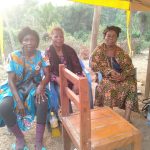GENDER EQUALITY
GENDER EQUALITY
The struggles for women’s rights have led to the development of international instruments, conventions and declarations, including the Convention on Elimination of all forms of Discrimination against Women (CEDAW), Beijing Platform for Action (1995) and the Millennium Development Goals.
In Cameroon, there have been efforts to formulate policies to give guidance on how to involve women in decision-making processes. The affirmative action which provides for 30 percent representation of women in all public sector appointments although yet to be translated into a policy by Parliament received a boost through a recent presidential decree, which directed public institutions to ensure 30 percent representation of women in all cadres.
A major milestone made by the government is the recent formulation of gender policy in Cameroon. The National Policy on Gender and Development provides a basis for the government to underscore its commitment to advancing the status of women. The government is determined to address any existing imbalances through policy formulation and implementation taking into account different needs and skills of men and women.
The policy proposes concrete steps including putting in place institutional mechanisms for the implementation, monitoring, and evaluation of the policy.
In spite of the declarations, political parties have been accused of under-representation of women in local councils and parliament. Operationalization of the manifestos through clear actions and programs has been lacking. Moreover, there is lack of political good will from the male-dominated political class to integrate women in leadership positions.
As regards women participation in the leadership of local authorities, there is an encouraging positive trend. Whereas women constituted 2.1 per cent of the elected councilors in 1986 and 2.7 per cent in 1992, as at 2000 they occupied 8.1 per cent of the elected positions in councils countrywide. Out of 3,800 councilors in Cameroon today only 354 (9.3 percent) are women. Out of 175 local authorities in Cameroon, only six (3.4 percent) are headed by women.
Cameroonian’s Constitution has counties as the basis of devolution in Cameroon. The counties will operate as semi-autonomous legal entities with administrative and legal powers delegated by the Government. This will provide a forum where local communities express their needs and aspirations which can then be formulated into policies to be implemented at the local level.
















